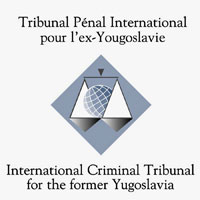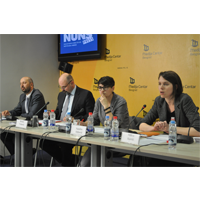ICTY Appeals Chamber Renders Judgment in Case of Stanišić and Simatović

 The Appeals Chamber of the International Criminal Tribunal for the Former Yugoslavia (ICTY) rendered a judgment on 15 December 2015 in the case of the former heads of the Serbian State Security Service (SDB), quashing the first instance judgment on account of errors in law, and ordering a retrial. The Humanitarian Law Center (HLC) maintains that the court’s decision is correct, and points out that in the case of the former Chief of General Staff of the Yugoslav Army, Momčilo Perišić, the ICTY made a serious mistake and that, had the Chamber not erred, he would have been held accountable for the assistance that this institution had provided to the Republic of Srpska Army in the commission of systematic crimes against the non-Serb civilian population.
The Appeals Chamber of the International Criminal Tribunal for the Former Yugoslavia (ICTY) rendered a judgment on 15 December 2015 in the case of the former heads of the Serbian State Security Service (SDB), quashing the first instance judgment on account of errors in law, and ordering a retrial. The Humanitarian Law Center (HLC) maintains that the court’s decision is correct, and points out that in the case of the former Chief of General Staff of the Yugoslav Army, Momčilo Perišić, the ICTY made a serious mistake and that, had the Chamber not erred, he would have been held accountable for the assistance that this institution had provided to the Republic of Srpska Army in the commission of systematic crimes against the non-Serb civilian population.







 The Higher Court in Belgrade War Crimes Department rendered a first instance judgment in the repeated trial of the
The Higher Court in Belgrade War Crimes Department rendered a first instance judgment in the repeated trial of the 



